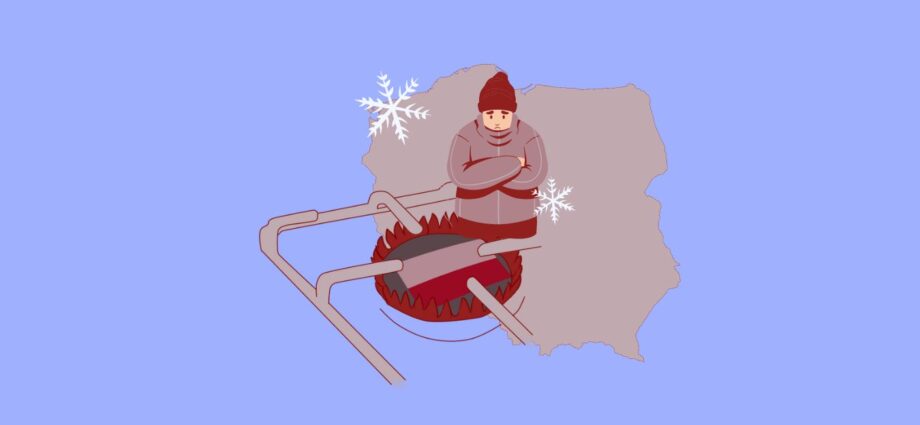By Joanna Sowińska
Following recent events in Ukraine, Joanna Pandera; a Polish energy specialist, traded her gas stovetop for an electric stove. A second preventive step consisted in installing an electric pump, which will allow her to keep her house warm throughout long and harsh Polish winters.
Nevertheless, Joanna’s story remains an exception to the reality of millions of Polish citizens, who will face the consequences of Gazprom’s’ closing of gas supplies to Poland. Following Poland’s decision not to pay gas in rubles – as demanded by President Vladimir Putin, the Russian company fully withheld its agreement with PGNiG, Poland’s state-owned energy provider.
This event is expected to have major consequences. This is due to Poland’s current 40% dependency on Russia for natural gas resources, a tremendously ever growing population reinforced by the arrival of millions of Ukrainian refugees and difficult winter climatic conditions, reaching up to -20°C.
Although the Polish government ensures that Poland’s national gas reserves reach almost 80%, numerous questions arise with regards to the sustainability of this solution, and the chances of finding reliable alternatives capable of supplying gas to over 52% of Polish households.
Those worries are also shared by Greenpeace (an independent global campaigning network), which predicts a drastic scenario of gas shortages by December 2022. Nevertheless, these assumptions remain arbitrary and perhaps extreme, considering the difficulty to access data from the government and draw accurate predictions for the future.
According to the latest statistics of surveys conducted by the government, 4 million households face a critical condition, as they do not have the possibility and/or means to substitute their heating systems. To make matters worse, energy experts warn the population about possible electricity blackouts, which may occur as a result of an excessive electricity demand. This is due to the recent shutting of power stations in Połaniec, Opole, Kozienice and Turów, as a result of a shortage of raw material such as coal.
Coming back to gas and still in the context of energy supplies, the energy expert in Sobieski Institute – prof. Robert Zajdler claims, “having energy infrastructures, does not guarantee that energy will be available.” Poland is definitely not the sole country facing difficulties during the upcoming winter, which extensively creates important tensions in the European Union regarding energy shares.
In the meanwhile, the Polish government implemented strict restrictions on energy use for the upcoming winter. Regarding electricity, Mateusz Morawiecki – the Polish Prime Minister announced that households keeping their electricity consumption under 2000kWh per year – will not be subjected to price raises; a limit judged too antagonistic by the population.
“I don’t watch TV anymore, do my laundry sparingly, keep on switching off the light everywhere; and I am not sure I fit in these restrictions. My house is ice cold” says Monika, a Polish citizen. Sabina, another interviewee comments on this by stating that saving energy is an utopia for certain people who are sick or have newborns for instance. “Maybe the government should start with itself, by lowering their radiators!” adds the last interviewee, Liliana.
As a response to this, the Polish government plans to limit the role of the stock exchange obligation and offer vulnerable users to be subject to tariffication for longer.
The effects of such measures are yet to be established, especially as redistribution policies have been regarded with a lot of criticism by Poles in the context of the highest inflation records in Poland since 26 years, exceeding 17.9% this November.
While any energy blackout fears are consistently dismissed by the government, the concerns from other European countries and inflating energy prices suggest this winter might mark a whole different reality, in which access to heating becomes a privilege, rather than a given.
Edited by Veda Rodewald, artwork by Teresa Valle

